|
Inquiry-based learning. Sounds thrilling, doesn't it?!? We're actually NOT being sarcastic! We're serious.... It's probably the teacher in us, but seriously, we get giddy with glee when we get to discuss Inquiry-based learning (IBL). It even has it's own initials. It's THAT cool. Seriously, it really is something to get excited about. We're going to try to convince you of it here. Not only is it an educational model that is used in leading schools, worldwide, but it also is proving, rightfully so, to create strong, independent critical thinkers who are capable of learning and applying deep concepts, It's adaptable for varied learning styles, student-centered and focused on the process of investigating for learning. It is a refreshing and rewarding way of teaching and learning, and is a shift we hope to see more schools working toward to best suit their students' needs. What is IBL? IBL (Inquiry-Based Learning) is an approach to teaching and learning that brings student's questions, observations, ideas, and investigations about the world to the forefront. The teacher's role becomes a facilitator for bringing life to their student's curiosities and guiding them from wondering to actively pursuing and applying new understanding. The teacher works with the various learning styles, interests, and abilities in the class, building from students' prior knowledge, observations, and questions. Projects, themed-activities, and skills are planned based on the students interests. Learning can be hands-on, investigatory, researched, play-based, and much more. Critical questioning, higher order thinking, and a focus on the process of learning and representing information are essential. In many ways, through this approach, students gain a deeper understanding of the world around them and how to interact and work within it, also they often learn more than the expected curriculum outcomes and are better prepared for vast and ever changing future. For more information about IBL or see resources we love, see here, here, and here. We could talk about the benefits forever. It is this reason our school teaches in this way. However, here's just a taste of why we feel you should be excited about it, too! 8 Reasons to get Excited about INQUIRY-BASED LEARNING: 1. Retention & Understanding When the new thing we have learned stems from knowledge we already had, observations we made on our own, or questions we asked because we were truly curious, we actually want to the know the answer. It is this motivation that drives IBL and why it is so effective - it follows a natural way of learning. When our ideas have are treated with value, our confidence rises, we invest more of ourselves into the idea at hand, and we build knowledge that connects to us. We make room for it because it has meaning to us, We remember it. We use it and apply it. We appreciate the process it took to learn it. It isn't just a series of things to know for a test, it's useful in real life and serves a purpose. 2. Real Life Problem Solving When was the last time real life handed you a sheet of division questions to solve and turn in? Or a research project on orca whales, just to practise those researching and writing skills? Hmm-mm, exactly the point. Real life isn't black and white like that, it's not as simple as complete, submit, receive results. It's filled with multi-step questions, meaningful problems, and complex situations that require background knowledge, understanding of skills and strategies, perspective and application of concepts. It's not at all like a checkmark (or an x) on a sheet of paper. IBL focuses on problem solving, and both the theoretical and real life skills needed to tackle actual problems and questions. It places importance of investigating ideas, applying concepts, and reflecting it's practicality. It creates learning that is purposeful, meaningful, and applicable to real life. 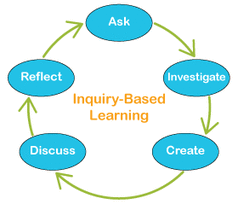 3. Collaborative Working with others, at some point for everyone of us, has become a fact of life. We may not like it or everyone we have worked with, but where would we be if everyone did everything alone? When we learn with others, we gain from their strength. We experience other perspectives. We hear things we may never have heard, value things we may never have valued. We learn how to respect, listen, empathize, share. We observe, discover, and internalize values and traits about ourselves. We learn how to communicate, compromise, criticize, and comment. IBL inherently creates experience that teach concepts as well as these many interpersonal skills. Through the process of engaging, questioning, researching, investigating, representing, sharing, and reflecting, IBL develops opportunities to learn how to work with others, as well as building strong, independent traits in ourselves. It unlocks a power that is invaluable for each learner growing up today in a world as ever-changing as it is. Skills in collaboration are lifelong and essential. 4. Motivation to learn Interested, Engaged, Challenged. Without interest, we are never really connected to what we are learning. And if we're not connected, we're most definitely not engaged, which means we don't really care to be challenged to think critically. If we truly want children to carry with them the skills, strategies, concepts, and knowledge about the world that they learn in school, we need to work with their unique interests, their own questions, and their already budding observations. When their own ideas are valued in this way, and used to inquire deeper, learning, both their motivation and appreciation for learning increases, without question (Ha, that's a most definite intended pun for anyone who's keeping up with this!) 5. Supports Multiple Learning Styles Using a student-driven model such as IBL means the way in which information is discovered and represented can also work with each learning style of the students. Which, I must say as an educator, is absolutely wonderful! It allows a student to completely embrace what they are learning, in a way that connects with them and their abilities. It is hands on or note taking or acting or speaking. It can be outside or inside. It can listening, viewing, reading, or creating. It can be really anything that represents knowledge in a critical and complex way. It invites creativity, imagination, innovation, and a feeling of limitless possibilities. It allows students to go deeper in their understanding and it allows teachers to create meaningful learning experiences that are fun, engaging, supportive, and cross-curricular, bringing out interpersonal and personal skills in their students that are so rarely emphasized and difficult to teach in traditional teaching models. It truly fosters individuality, independence and a respect for learning, in all of it's shapes and forms. It creates perspective and a welcoming environment for change, diversity, and expression. Students learn to work together, among each other, and on their own, gaining from each experience and applying it to critical questions about their learning. 6. Exceeds Standard Curriculum Outcomes Would you rather skim the surface of a topic and then move onto another, or deeply explore a topic, perhaps uncover sub topics within it and then connections to other topics that naturally lead into another topic? Which would work better for you? Which scenario builds knowledge worth getting involved in? Which seems more interesting? We believe the deeper the understanding of a topic, the more questions come about, the more critical thinking starts to form, and in consequence, the more information is explored. Often times through teaching in an IBL approach, students' curiosity sparks an investigation guided by the teacher that builds such a strong understanding and motivation to learn, that students will piece together so much more than a quick answer to their original inquiry. Students develop a deeper understanding of various topics that all relate and have a meaningful connection, which goes much further than any standard curriculum. 7. Critical & Independent Thinking
Today's world is unpredictable and changing by the minute. Preparing students to be successful in that world is daunting, to say the least. IBL offers learners one of the most invaluable skills that will undoubtedly create lifelong abilities to make smart choices, work within a diverse and ever-changing world, and make a positive impact on our future. IBL focused on critical thinking - asking deep and complex questions, sharing perspectives, challenging facts and opinions, digging deeper into understanding and truly thinking at a higher level about our world and how we live within it. It goes far and beyond worksheets and quizzes. IBL places students at the forefront. The focus is on the process of learning, the why's and how's,. It stems away from having teachers at the front of room giving answers. For in the world we live in, it's not simply the answer that matters, but why and how that answer works. 8. Never Outdates Itself We'll leave you with this last point, if we haven't convinced you yet. As the world changes, so does what needs to be taught. But in an IBL model classroom, the information is always what students are seeking. The focus on the process of learning sets itself up to never outdate itself or go out of style. It will change, flex, adapt, and work with whatever group of students, wherever they are in the world, whatever resources are available to them, and whatever the world they live in looks like. It utilizes the world around us, whatever world that may be, both past and present, to inform us and teach us. The truth of the matter is that IBL learning replicates our most natural way of learning, so innately, it'll stick with us, no matter what weird turns we take along the way.
0 Comments
Your comment will be posted after it is approved.
Leave a Reply. |
Welcome to Our BlogEach post is written by a supportive member of Via Vita Academy, be it a teacher, parent, student, community member, who is invested in the topic of education. Take a read and comment below! Archives
February 2022
Categories
All
|
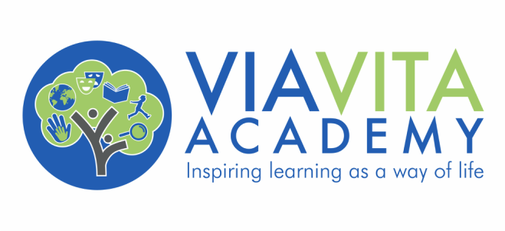

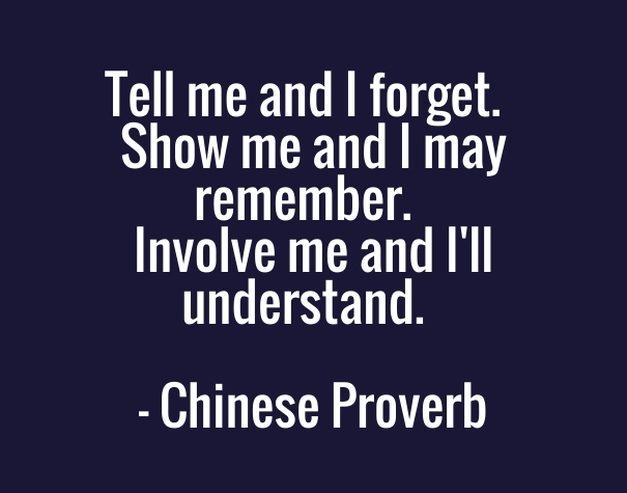
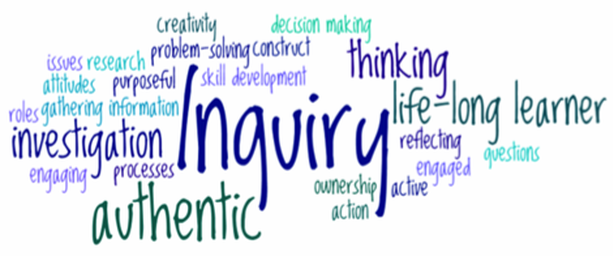
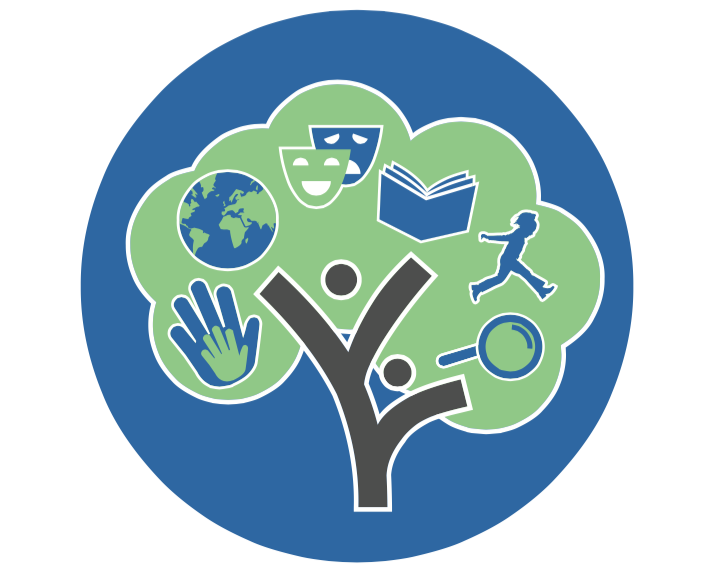
 RSS Feed
RSS Feed